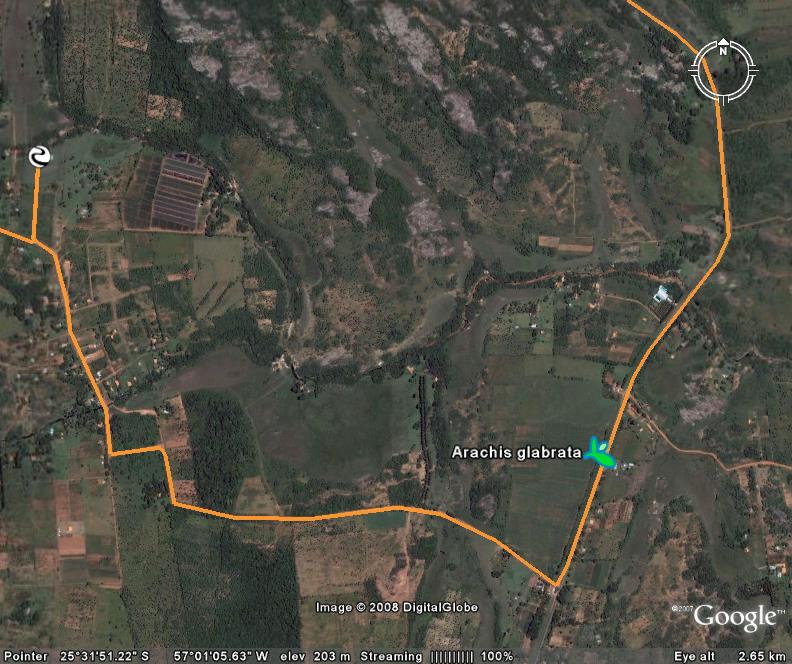Our thanks to Hannes Dempewolf for this guest post.
 What forces drive maize evolution and what factors contribute to the generation of maize agrobiodiversity? This question has been the focus of a recent study, published in PNAS.
What forces drive maize evolution and what factors contribute to the generation of maize agrobiodiversity? This question has been the focus of a recent study, published in PNAS.
Contrary to the popular opinion that maize diversity at present is largely a result of artificial selection on local germplasm, the authors call for careful consideration of the ‘larger social context of maize evolution’ and explore the implications of ‘farmer-led selection’ on maize diversity. Using a theoretical approach, underpinned with some empirical data, they investigate the interplay between farmer-led selection and informal seed systems. This can result in the spread of varieties that are not necessarily ones of superior agronomic properties, but are favoured due to other factors, such as superior seed supply mechanisms:
…A frequent supplier of seed might be a farmer whose seed is faithful to a type. His seed line will be well represented locally or even fixed… Another farmer that keeps a stock of maize might be known as a sure supplier of seed when others are lacking. His seed might not be preferable to others’ but might still become locally predominant if the seed population is small. If the population is large, the demographic outcome depends not only on the rate at which he gives out seed but also on how long he keeps it.
In the context of their discussion of seed replacement, they correctly recognize that
High revenue is of less concern to subsistence farmers, who deal with a larger set of issues and overwhelmingly prefer landraces…New seed does not always perform well, especially nonlocal types acquired through informal seed systems. Farmers test seed and discard ill-adapted and inferior types. Most introduced seed is replaced after its first year, more than twice the rate of local seed.
However, introduced germplasm which has not been discarded might introgress into local seed stocks and help to maintain diversity: “When more variation within a locality is lost than created, an external source is required to maintain diversity… It is unlikely that introduced seed is displacing local types systematically.†This is because most introduced seed is not kept true to type but hybridizes with local landraces. What the prevalence of hybridization means for the genetic makeup of local landrace varieties is still unclear, but this question has received considerable attention lately, especially in the context of GMO risk assessments.
The view that, once markets are well developed, farmers shift to adopting improved varieties and hence cease to maintain diversity seems not to hold true in the case of maize in Mexico. There doesn’t seem a loss of diversity even in well developed markets. Diversity at the local level might instead be the result of individual farmer’s unintended actions, as described above.
Further contemplating the role of farmers in maize evolution, the authors suggest:
Farmers’ main goal is appropriating value, whether economic, cultural, or ritual. Whereas some might achieve this through improvement of local seed stocks, others might prefer to keep these stocks unchanged, defying our conceptions of improvement. Others may find it optimal to replace those stocks. It does not follow that seed improvement and conservation traditionally have been performed by farmers specialized as seed curators. Unlike modern maize farmers and breeders who specialize in distinct tasks, most Mexican farmers engage in seed improvement, diffusion, and farming simultaneously. Although individual management decisions have a specific intent (i.e., to preserve or replace seed), it is the sum of farmers’ actions that drives changes in maize populations. These actions can have unintentional albeit predictable effects on the metapopulation dynamics of maize.
One limitation of their study, as the authors acknowledge, is their assessment of the system at one single point in time. They suggest that even after major disruptions of the seed systems, such as catastrophic weather events, normal dynamics are bound to return after seed diffusion through government and relief agencies has ceased. Although these dynamics might indeed return, it would be interesting to see how the genetic makeup of the maize genepool changes in response to human intervention on such dramatic scales.
Social aspects of crop evolution, although undeniably of great importance, have received only limited attention by many students of evolutionary theory. One can only hope that papers like this spark the debate and contribute to a more rigorous scientific exploration of these complex interactions between social factors and crop population genetics.
It should be interesting to see how demographic modelling attempts on the evolution of crops other than maize are taking into account these factors. One could well imagine that this might lead to a major change in the way crop evolution is understood by many researchers.

 The
The